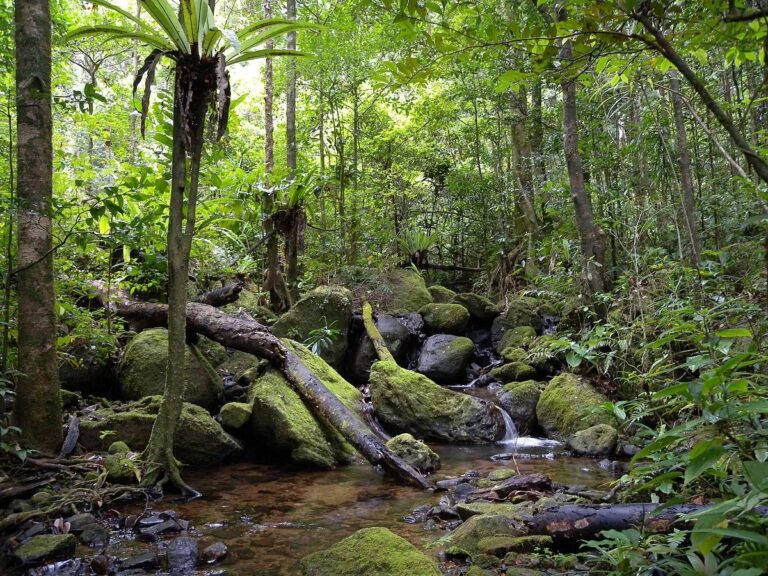Nigerian States and their Natural Resources
Nigeria is a country in West Africa blessed with an abundance of natural resources across its 36 states. From oil to solid minerals, agriculture to tourism, each state contributes to the nation’s economic growth and development. With a population of over 200 million people, Nigeria is the most populous country on the continent and one of the most vibrant economies in Africa.

As we celebrate Nigeria’s independence on October 1, let’s take a closer look at some of the states in Nigeria and the natural resources they have.
- Rivers State

Rivers State, located in the Niger Delta region of southern Nigeria, is a land abundant in water resources and a hub of Nigeria’s oil and gas industry. Its capital, Port Harcourt, is home to some of the biggest multinational oil companies and refineries, making it the centre of Nigeria’s petroleum industry. Rivers State is more than just oil and gas. It is also blessed with rich agricultural resources and lush vegetation.

From the fertile farmlands to the forests, Rivers State is a land of natural beauty. The state’s agricultural sector is a major contributor to the country’s food security, and its farmers are known for their hard work and dedication.
- Ogun State

Many people refer to Ogun State as the gateway state, and it’s easy to see why. Located in the southwestern region of the country, this state boasts a variety of mineral resources, such as limestone, granite, and clay, which support its thriving cement and construction industries.

Agriculture also plays a significant role in the state’s economy; the state’s agricultural sector is constantly growing and evolving.
- Zamfara State

Zamfara State’s title, “Golden State,” is well-deserved because, with the availability of significant gold reserves, this region has become a gold mining centre. The appeal of this valuable metal draws miners to the state in search of their fortune.

The state is located in the northwestern part of Nigeria, and its gold mining industry contributes greatly to Nigeria’s gold output and economic growth. Although gold is the main attraction, Zamfara State’s mineral wealth does not end there. It also has an abundance of lead and zinc minerals. These base metals are essential components in a variety of sectors, including building and battery manufacturing.
- Ebonyi State

Ebonyi State is a substantial mineral treasure and a booming agricultural centre in the south-eastern part of Nigeria. The state is well-known for its large reserves of lead, limestone, and granite, but it also has a thriving agricultural industry with a heavy emphasis on rice cultivation and a range of cash crops. Ebonyi State has established itself as a key player in Nigeria’s rice production environment.

Rice cultivation has increased significantly due to the state’s abundant land and adherence to modern agricultural practises. In addition to rice, Ebonyi State grows a variety of cash crops such as cassava, yams, cocoa, and oil palm. These crops not only add to the state’s agricultural output, but they also provide a source of income for local farmers and help to support Nigeria’s agricultural economy.
- Kogi State

Kogi State, located in north-central Nigeria, is renowned for its rich iron ore deposits. It is one of the key states contributing to the iron and steel industry in the country. It is one of the most important states in the country’s iron and steel sector.

Kogi State has earned its proper place as one of Nigeria’s iron ore lands. Its vast iron ore resources are essential to the country’s iron and steel industries. These resources are required for the manufacturing of steel, a critical component of construction. Aside from iron ore, the state also has limestone, marble, and coal.
- Taraba State

Taraba State is a land of abundant mineral resources waiting to be discovered. The state’s rich geology is home to valuable deposits of limestone, gypsum, and barite, which have the potential to drive economic growth and development.

But Taraba is not just a mineral-rich state. Its fertile soil and favourable climate make it a prime location for agriculture, with farmers cultivating a diverse range of crops such as maize, rice, and soybeans. Located in the northeast, the state’s agricultural sector is a significant contributor to the economy, providing employment opportunities and food security for its people.
The states we highlighted are just a few examples of the many regions in Nigeria that are rich in resources and contribute significantly to the nation’s prosperity. Nigeria’s regions offer diverse resources for economic growth, from oil-rich Niger Delta states in the south to mineral- and agriculturally productive areas in between. With the appropriate policies and investments, Nigeria can move from an oil-dependent economy to a diverse and successful nation that benefits from its abundant natural resources.







